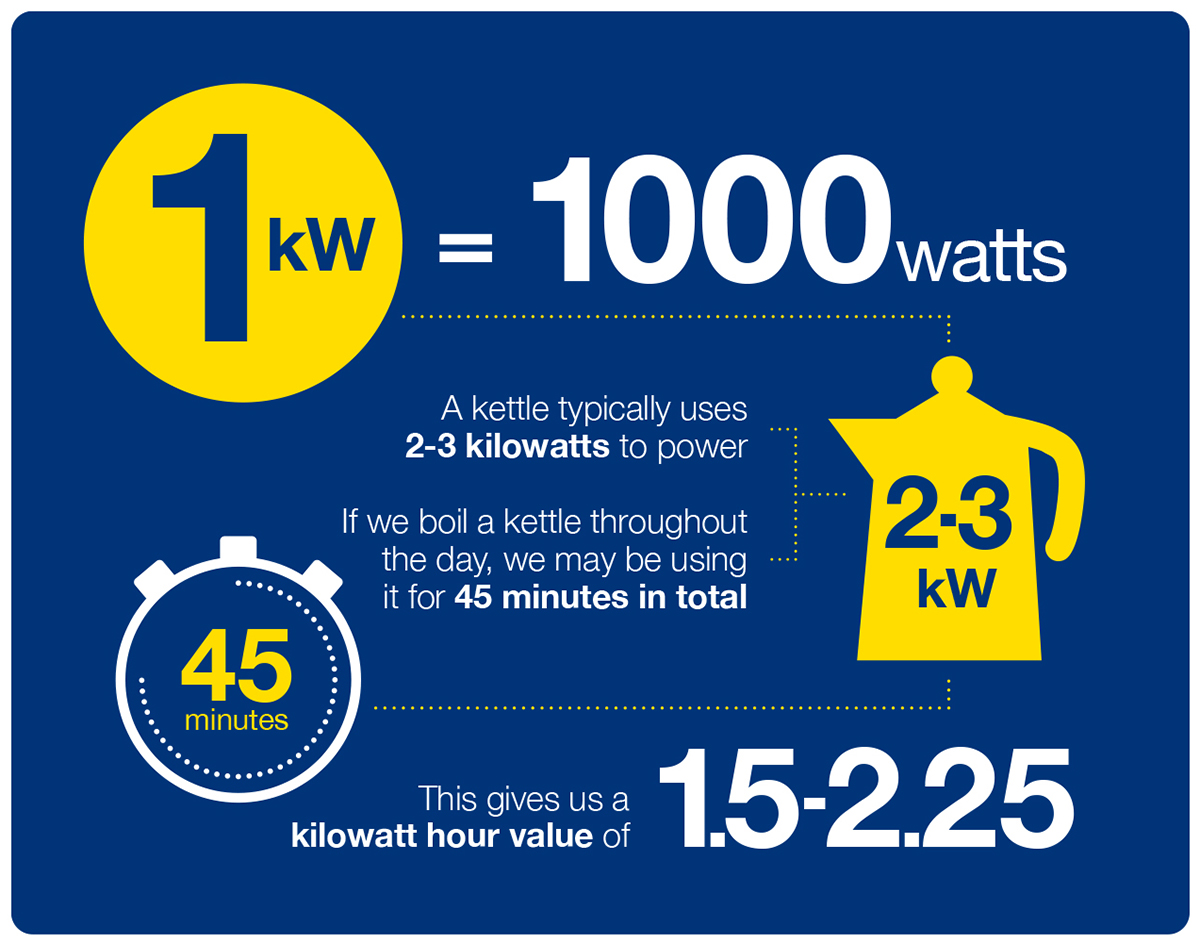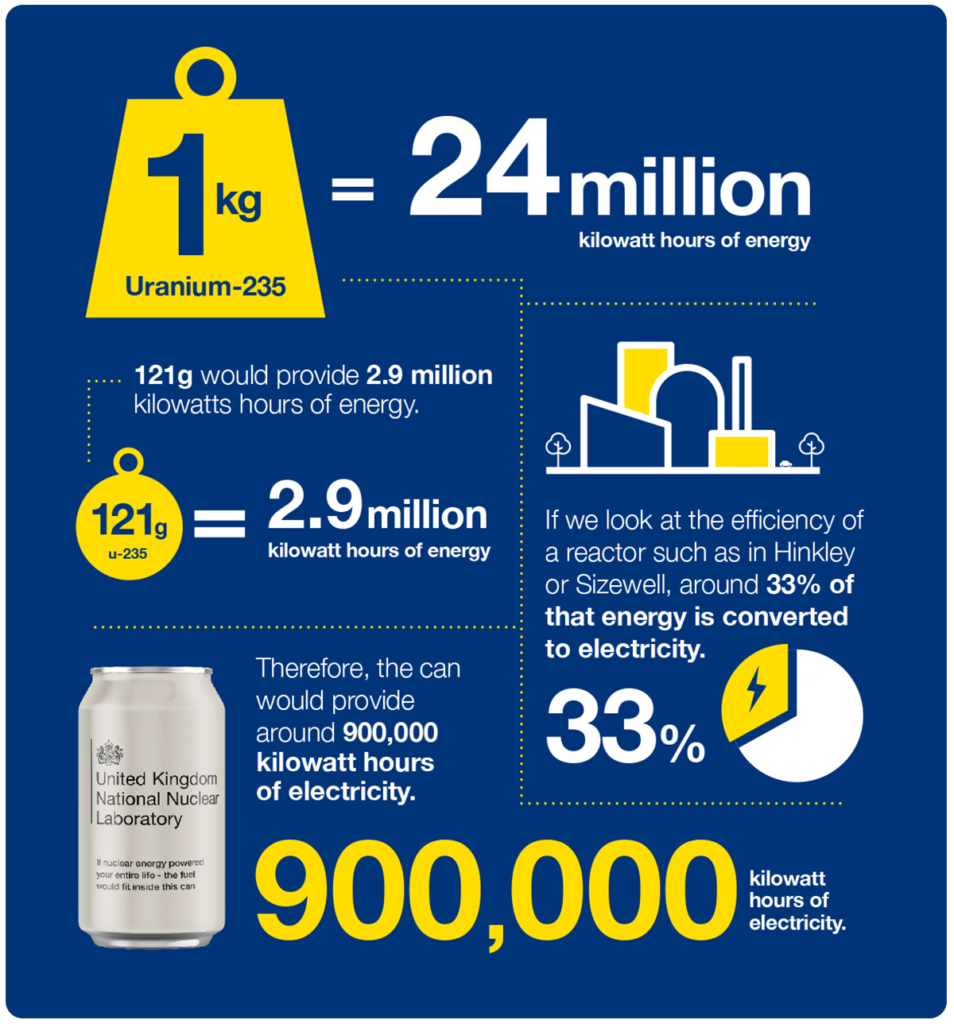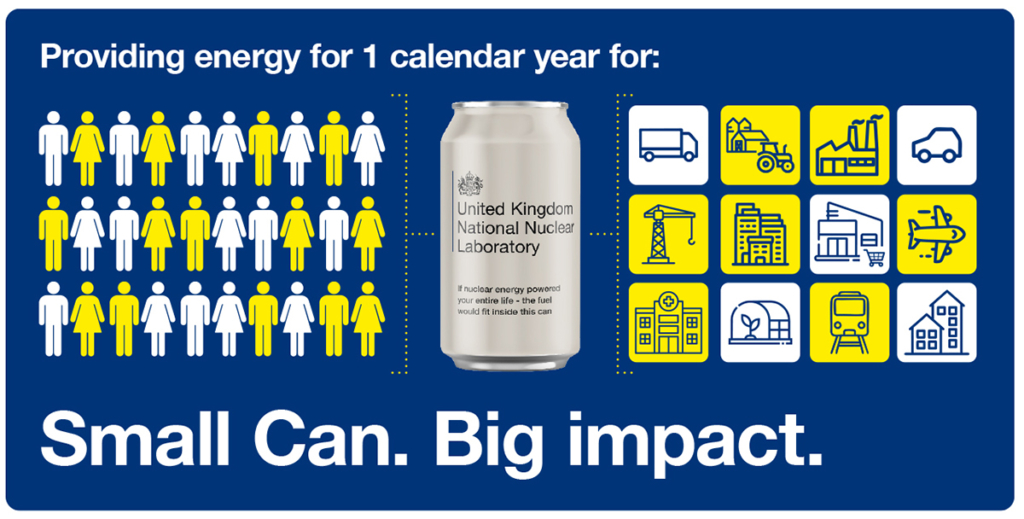NuClear Science in depth
Can a single person’s lifetime of fuel fit in a water can?
Every time we switch on a light or charge our phones, we’re using energy that typically comes from burning fossil fuels. But what if there was a cleaner, more efficient alternative?
Our claim that the total amount of nuclear fuel you’d need to power your life would fit in a water can has sparked curiosity. Let’s dive into the science behind it.
The quick answer is yes, but how did we work it out? We asked one of our reactor physicists, Temi Awogboro to explain the science behind the claim.


The Science Behind Nuclear Fuel Efficiency
Every time we turn on an electrical appliance, the energy it uses is measured in watts. I based my calculations on the electricity consumption of the UK, which results in around 338,000 kilowatt hours per person, based on a life expectancy of around 80 years.
A thousand watts is a kilowatt. A kettle typically uses 2-3 kilowatts to power. If we boil a kettle throughout the day, we may be using it for 45 minutes (0.75 hours) in total. This gives us a kilowatt hour value of 1.5-2.25.
Calculating Lifetime Energy Consumption
If we assume that all the electricity we used came from a nuclear power plant, then we can make calculations on the amount of nuclear fuel that would take.
Nuclear fuel is typically used in a reactor in fuel pellets. If we filled a 330ml can with fuel pellets, the proportion of uranium-235 (it’s radioactive form) would be 121g.
1kg of uranium-235 provides 24 million kilowatt hours of energy. So 121g would provide 2.9 million kilowatts hours of energy. If we look at the efficiency of a reactor such as in Hinkley or Sizewell, around 33% of that energy is converted to electricity. Therefore, the can would provide around 900,000 kilowatt hours of electricity.
This means that a can would fuel more than two people’s electricity use.


Powering our entire energy consumption
But we use more than electricity in our lives. Most homes have gas boilers, and the majority of cars are fuelled by petrol or diesel. We also use energy to manufacture and transport goods around the country, grow our food and power our hospitals, offices, supermarkets and datacentres.
The UK’s annual total energy consumption from all sources of energy is 102.6 GJ per person. This includes energy from oil, gas, solar, wind, hydroelectricity and nuclear. This works out to around 28,500 kWh per person – meaning the volume of a can of fuel pellets would power the energy consumption of over 30 people for the whole year.
Small can, big impact.

